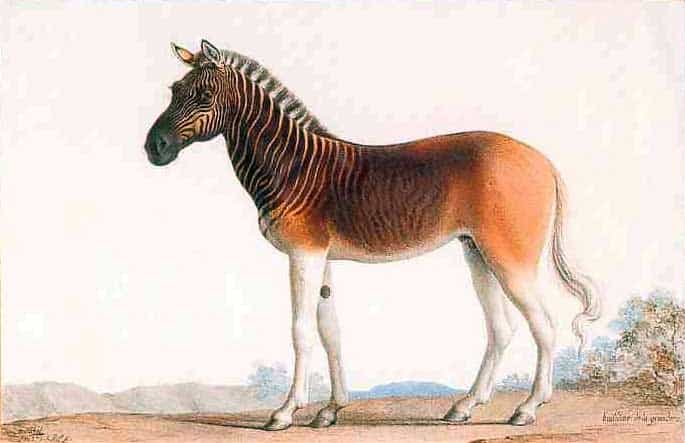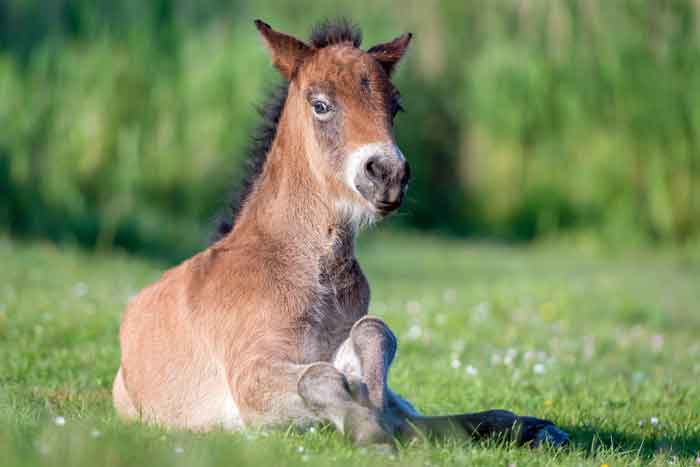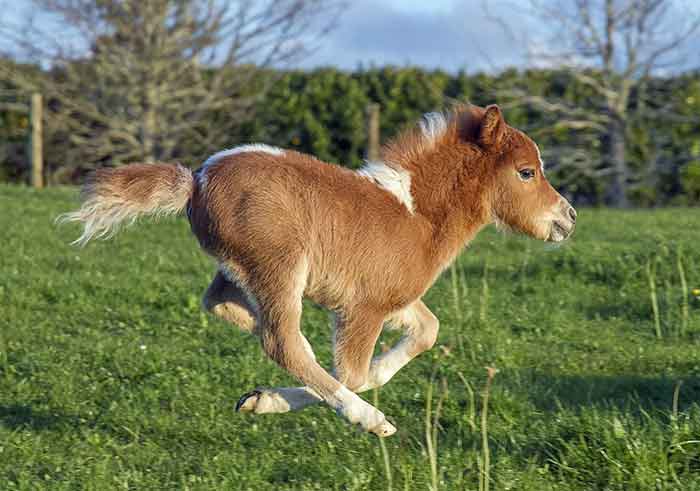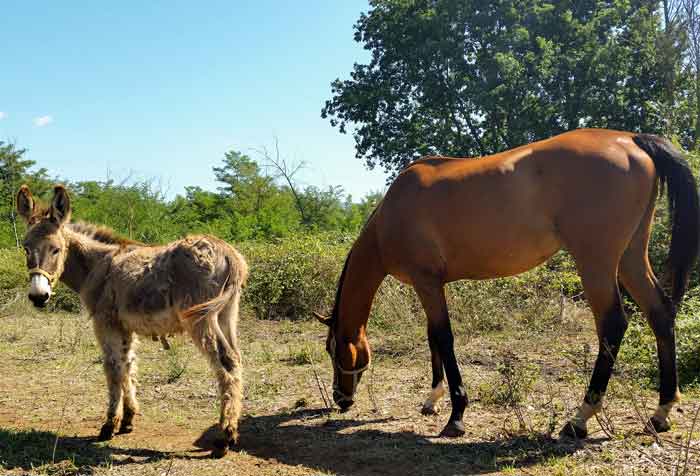What are the best horse breeds for endurance races? Let’s find out. There are some very unique characteristics we look for when we want the absolute best horse for endurance races.
These are the most common breeds used for endurance riding.
Table of Contents
The Best Horses For Endurance Races
The most typical horse breeds to find in endurance races are the Arabians. And they are very good reasons for this which we will look at here.
Arabian horses
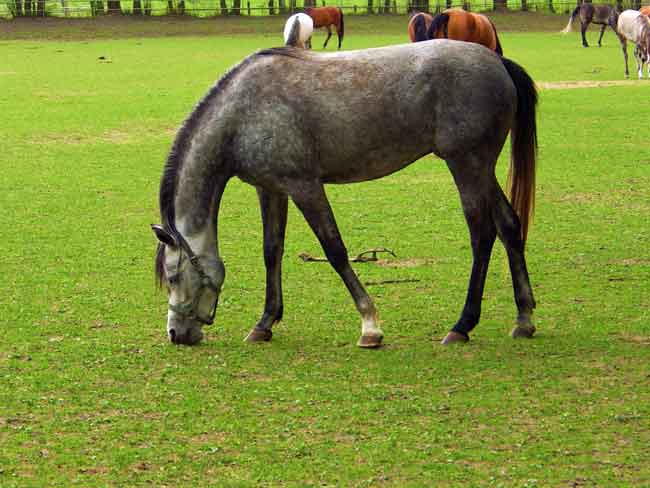
Arabian horses tend to have longer muscles which makes them perfect for long stretches. They have compact bodies and long legs.
There are several variations within the breed as people have bred Arabian horses for years. Some are bred especially for endurance racing. What we want to see is a horse that is not too tall and that has long muscles that are great for long distances.
The horse must have a good temper and the will to keep going when it gets tough and that’s typically exactly what you get with an Arabian horse.
Arabian horses are not among the tallest horse breeds as they are around 14-15 hands (57-61” or 145- 155 centimeters) tall to the withers. This makes them great for endurance runs because they are not too heavy or too bulky. We need a light horse that is still strong enough to finish the race.
Here are some other good advantages of arabians:
- They have a strong and light frame.
This is important because it should not be too round and broad over the shoulders as it would make it too heavy. - Strong feet
The hooves need to be as strong as possible because they want to go over rocks, hard surfaces and we need it to just keep going no matter what we throw at it here. - Good balance
We want the horse to be balanced well over the shoulders and have a good weight distribution between the front legs and the hind legs. The hindquarters should not be too strong (as we often see with quarter horses) because that will cause problems in the long run.
So as you can see, the Arabian horses are not too big.
This is actually perfect for endurance riding as we want a horse that is no more than 16 hands tall. Preferably it should even be a little lower than that.
Thoroughbreds, as an example, are typically a little taller. We will look at the thoroughbreds in the next section.
That being said, some arabian horses are suited for long distances while others are bred for shorter races. Like quarter horses, the sprinters will have stronger hind legs and shorter and bulkier muscles.
Criollo
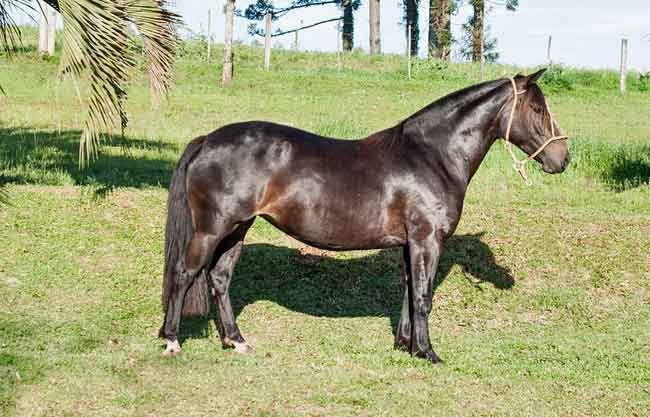
This horse breed is not as famous as the Arabians or the other breeds mentioned in this article. But they are definitely worth mentioning because they have proven over and over again to be extremely good over long distances.
The horses originally South American and it has a reputation of being very good at carrying a lot of weight over a long distance. Perfect for what we need here!
They are pretty small horses with an average size of only 14.3 hands (57.2 inches or 145 centimeters) to the withers. This is just great for going on distances as we want a pretty light horse.
On top of that, the Criollo horses do really well with high and low temperatures. This is important as well because you don’t know what type of weather you will experience over a 100-mile stretch. They have been bred from horses that did well in both the extreme heat and cold weather because these were the conditions in Pampas, where they originate from.
In order for a Criollo horse to be used for breeding the horse would have to go the distance of 466 miles (750 km). It would have to do so in around 75 hours over a course of two weeks. It was not allowed to have any food during these 14 days.
So as you can imagine, these are very strong animals with a very high level of perseverance!
But it doesn’t stop here.
The horses would also have to carry a load of 245 pounds (110 kilograms) on their backs and they would only eat the grass of the side of the road during these days.
Akhal-Teke
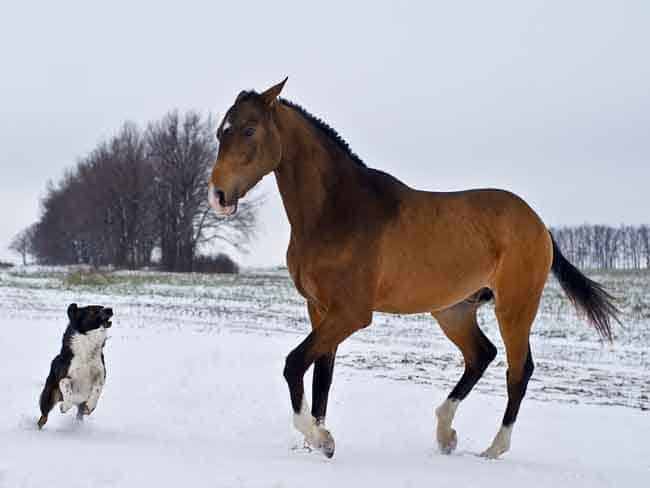
This is a very interesting and fascinating horse breed. It’s actually known as one of the oldest horse breeds around and they are famous be being great with changing weather and temperature.
It’s a horse breed from Turkmenistan and that means this horse has been bred to withstand high and low temperatures and extreme weather conditions.
Again, this is a very important trait to look for with your endurance-race horse. We want horses that do well in wet and warm weather as well as cold weather. Because these are the conditions you will experience along the way. You cannot stop for two days because it gets cold or starts to rain.
Remember that you typically have to finish within 24 hours or so.
It’s generally between 14.2-16 hands tall (59-64 inches or 150-163 centimeters) so we need to find one of the smaller horses among this breed. We cannot do well over very long distances with a horse that’s well above 15 hands (60 inches or 154 centimeters).
Remember, that we are talking about the very best breeds and horses for long distances. If we would just talking about whether are not the horse could complete an endurance ride we could definitely also use a horse that’s a little taller.
But when we look for a winning horse we want the optimal height of around 14.5 hands (58 inches or 147 centimeters).
Just to show the level of perseverance in this horse breed here’s an example of what they accomplished in 1935:
A group of riders rode 2500 miles (4023 kilometers) from Ashgabat (the capital of Turkmenistan) to Moscow in 84 days. On this trip, they passed 235 miles (378 kilometers) of the desert with no water!
Cross-Breeds
You also find a lot of horses that are half-Arabians.
As we mentioned at the beginning of the article the absolute most-used horse breeds for these races are the Arabians. They seem to have the perfect dimensions and weight in order to do well in endurance races.
This also means that you will find a lot of crossbreeds that are half Arabian horses which will do well with long distances.
Whenever your breed an Arabian horse with any other horse breed you typically get a good horse for running distance races. So it definitely doesn’t have to be a purebred Arabian horse in order to do well.
Find a horse that works well with you and have a temper you can work with. All horses are different and have their own personality, as you probably know, so it’s really important to watch how the horse behave when you push it and try to go the extra mile.
Thoroughbreds
Another great racehorse for longer distances is the thoroughbred horses. They are built quite similar to Arabian horses but they are generally a little taller.
Thoroughbreds are typically around 16 hands tall to the withers (64 inches or 163 centimeters). They are very tall horses which gives them an advantage on the field.
Even though they are a little taller than Arabian horses they can be great. You will often find thoroughbred horses among the lineup when you watch endurance races.
The Characteristics Of A Great Horse For Endurance Riding
So what exactly are we looking for when we want to find the perfect horse for endurance races?
We can actually get pretty specific here and we will now break it down into 4 things.
Not too tall
So why do we not want the horse to be as tall as possible? It would seem logical to look for a horse with as long legs as possible in order to go over the long distances. The That’s simply not the case.
This is because the extra height comes with additional extra weight.
We don’t want to have a horse that is too heavy so we need to get a good medium-sized horse that is between 14 and 15 hands tall. This has been proven many times to be the ideal height for a long-distance horse.
Slim muscles
Just like we don’t want a heavy horse we do not want a horse with too big muscles either. It might seem like a good thing at first when you think about big muscles but we are actually looking more after muscles that are built a little differently.
We are looking for what is known as “slow-twitch muscles”.
These are muscles that do well over a long distance and they are also the type of muscles you find on human marathon runners.
This has to do with the fibers in the muscles. They should be slow-twitch fibers that will burn fewer calories and work with low blood pressure.
This is something you need to develop in the horse by training. As you go longer and longer distances with your horse it will develop the right type of muscle fibers inside the muscles.
A strong will
We need a horse with a strong will but it also needs to be pretty calm at the same time.
The character is extremely important when we are talking about conditioning a horse toward completing (or winning) an endurance race.
So what is the right type of temper for a horse here?
This is what you should look for:
- A mild temper you can easily control
- A horse that likes to compete
- A horse that is not easily distracted as you will ride past traffic and noise
- A horse that is eager to run
If you can check off all these four points with your horse you have the perfect horse for starting to train toward an endurance race.
Strong hooves
You also need a horse with very strong hooves as they are going to get pushed to the limits.
You should take your horse to the farrier to have him/her look at the hoves. This is important to make sure that the horseshoes fit properly and also to make sure there are no cracks in the hooves.
It’s like choosing the perfect pair of running shoes for yourself if you were to finish a marathon. Nobody should do a marathon in canvas shoes are in flip flops.
In the same way, you need your horse to have the best possible feet care in order to make it less painful.
Some horses will not have strong enough hooves in order to go 50 or 100 miles. So you better get it checked before you start working toward this goal.
Did You Know…
Endurance races developed as a training race for the military horses more than 100 years ago.
The military wanted to make sure that the horses would do well over long distances and they wanted to know the limits of the horse on the battlefield.



